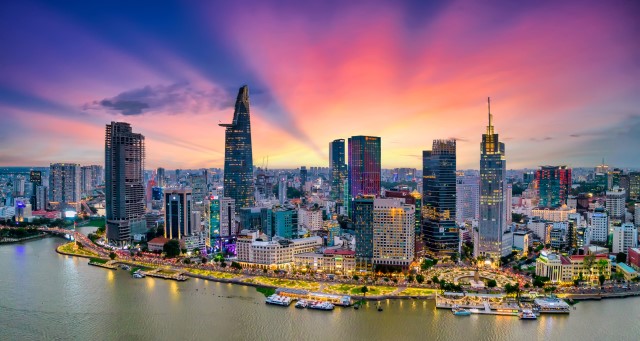Ahead of the inaugural AHICE South East Asia, which takes place in Singapore on February 27-29, JLL Hotels and Hospitality Group CEO APAC, Nihat Ercan, discusses the latest developments in hospitality across the region.
In 2023, two consistent headlines emerged. Firstly, the headwinds faced by the commercial real estate industry attracted substantial attention. Secondly, international travel continued to bounce back, and the hotel sector in Asia continued to show strong revenue growth. When combined, inevitable questions about the state of hotel investment, especially in tourist-heavy regions like Southeast Asia are considered, in 2024 and beyond.
Globally, the hotel industry demonstrated another year of remarkable resilience, with revenue per available room (RevPAR) achieving a full recovery and surpassing 2019 levels by 12%. Investors continue to take notice, especially private equity which remains the leading buyer of hotel assets worldwide. Even more encouragingly, last year also witnessed a remarkable rise in new investors joining the industry, as first-time hotel buyers accounted for a record-breaking 19% of global hotel investment volume for the year.
The big question is what’s in store for 2024 and closer to home, what are some of the major themes for Southeast Asia’s hotel industry? According to JLL’s analysis, the most sought-after hotel assets will continue to be irreplaceable luxury properties, as well as those in the select-service and extended-stay sectors. This trend is spurred by increasing global wealth and the ongoing convergence of living and traveling, respectively.
Do these themes play out closer to home? In short, they largely do, which could spell another strong year for Southeast Asia’s hotel industry from both an occupancy and investment point of view. Localized in Southeast Asia, RevPAR levels are just below 2019 levels by less than 2%, driven by high average daily rates (ADRs) as the market saw a shift in consumers’ willingness to pay for quality both product and experience.
In 2024, JLL forecasts that value-add opportunities in Southeast Asia will be on the radars of investors. Specifically, this investment strategy will allow buyers to counter negative finance leveraging and meet their hurdles.
In Singapore, investors remain assured by the country’s safe haven status. Buyers are predominantly high net worth individuals (HNWIs) and family offices, which are less reliant on debt financing. In parallel, the majority of hotel owners in Singapore continue to opportunistically look for buyers, with little to no pressure to divest thanks to strong balance sheets and dry powder available.
Across the straits in Indonesia, investor demand is more varied across geographies. Inbound capital is originating in the Asia region but is also coming from Middle Eastern and European owner-operators and HWNI/corporate buyers looking at strategic investment opportunities. Local investors continue to dominate, with the commodity and economic cycle buoying local capital.
Thailand’s well-established and diversified hospitality market also looks attractive. Investment volume is expected at THB9-10 billion, close to the 10-year average volume of THB11.7 billion. JLL’s projection is supported by a positive spread between hotel yields and financing costs in Thailand, one of the few markets with a positive spread in the region.
Vietnam has faced some of the strongest headwinds in the real estate sector in the region, and international tourism has been relatively slow to recover. Domestic visitors continue to play a vital role in Vietnam’s tourism industry and investors maintain their focus on key cities such as Ho Chi Minh City, Hanoi, and Danang. Trading should recover further, whilst real estate headwinds may ease. There is some stress in the market which can favor incoming investors, and a slowdown in the development pipeline helps reduce the high level of supply growth.
While still early days in 2024, high-rate growth in recent years and occupancies continuing to rise should sustain interest in Southeast Asia hotels. Some markets are starting to show signs of plateauing after a strong recovery period, yet others still have plenty of growth ahead. As presumed normality returns to investment markets with debt markets improving, hotels are well-positioned to emerge as a catalyst for recovery in the broader commercial real estate market.


